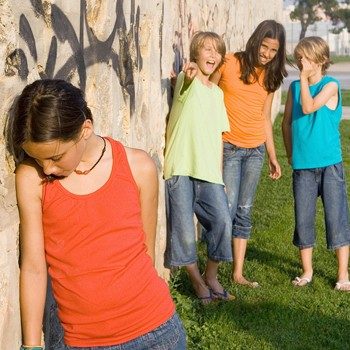 A new anti-bullying study, and a new law, will help reduce the risk of suicide among LGBT youth.
A new anti-bullying study, and a new law, will help reduce the risk of suicide among LGBT youth.
We have seen and heard the heartbreaking stories of LGBT youth taking their own lives because of bullying and lack of acceptance in their school and community.
Children, with ages ranging from 9 years old to 17, have committed suicide from the lack of protection is shown.
Perhaps the tables are beginning to turn with the recent event anti-bullying law that was passed in Massachusetts.
According to a new study, lesbian, gay, bisexual, and transgendered (LGBT) youths living in states and cities with more protective school climates are significantly less likely to report one-year suicidal thoughts than LGBT youths living in states and cities with less protective school climates.
The study, titled, Protective School Climates and Reduced Risk for Suicidal Ideation in Sexual Minority Youth, “affirms that school climate is a critical component to comprehensive suicide prevention programs aimed at reducing LGBT disparities in suicide risk,” said study co-author Ilan Meyer, Williams Senior Scholar of Public Policy.
In the most protective school climates, lesbian and gay students had about a one-third reduction and bisexual students had the fifth reduction in suicidal thoughts. Associations between positive school climates and reduced risk for suicidal thoughts remained significant even after controlling for potential confounders.
The magnitude and direction of the results were similar for suicide plans and attempts, but these outcomes did not reach statistical significance.
“Given schools’ wide variation in protective policies and practices, the study suggests educators and youth advocates have a significant opportunity to take concrete steps to reduce the risk of suicide among LGBT youth,” says Mark Hatzenbuehler, the study’s first author.
The study, funded in part by an NIH grant for the Center for Population Research in LGBT Health at The Fenway Health Institute, looked at schools in eight cities and states Chicago, Delaware, Maine, Massachusetts, New York City, Rhode Island, San Francisco and Vermont.
The percentages of schools with varying types of protective school climate policies are set out below:
- 45% had a Gay-Straight Alliance or similar club.
- 45% provided curricula on health matters relevant to LGBTQ youths (e.g., HIV).
- 62% facilitated access to providers off school property that provided health and other services specifically targeted to LGBTQ youths.
- 73% encouraged staff to attend trainings on creating supportive environments for LGBTQ youths.
- 90% prohibited harassment based on sexual orientation or gender identity.
The study used a representative sample of public school youths pooled from 2005 and 2007 Youth Risk Behavior Surveillance Surveys (YRBSS). Data on school climates was from the Center for Disease Control’s 2010 School Health Profile survey. The full study is available in the American Journal of Public Health
Meanwhile, GLSEN, the Gay, Lesbian & Straight Education Network, has applauded Massachusetts for its passage of an LGBT-inclusive anti-bullying law.
Gov. Deval Patrick signed legislation making Massachusetts the 17th state to enact an enumerated anti-bullying law that will strengthen anti-bullying protections for LGBT students.
“As the 17th state to pass inclusive anti-bullying legislation, Massachusetts is sending an impactful message to its LGBT youth,” said Dr. Eliza Byard, GLSEN’s Executive Director. “LGBT students in Massachusetts can feel confident their educators are committed to providing them with the safe and inclusive school environments they deserve. GLSEN looks forward to the day when every student in every school in the country can feel just as supported.”
H. 3909, “An Act Relative to Bullying in Schools,” will update existing anti-bullying legislation by requiring every district to include specific protections in their bullying prevention plan recognizing frequently targeted groups, including LGBT youth.
The legislation will also implement two key methods of tracking incidences of bullying: a student survey to be conducted every four years gathering information about school safety and climate, and a data collection and reporting mechanism allowing officials to better measure and evaluate the impact of anti-bullying efforts.
“As we celebrate this great victory for LGBT youth across Massachusetts I thank our partners at GLSEN for their decades of leadership on LGBT issues in K-12 schools,” said Kara Coredini, Executive Director of MassEquality. “Their pioneering work laid the foundation for today’s advance. They were with us every step of the way in this campaign with critical research, technical assistance and connections to other education organizations that helped build the power of our coalition.”
Massachusetts is the 17th state plus Washington, D.C. to enact an LGBT-inclusive anti-bullying law. The signing in Massachusetts comes just two weeks after Minnesota Gov. Mark Dayton signed a similar anti-bullying measure into law.
“We hope the success of the Act Relative to Bullying in Schools signals to the rest of the country that it’s time to defend all students against bullying, regardless of their sexual orientation or gender identity/expression,” Byard said.




